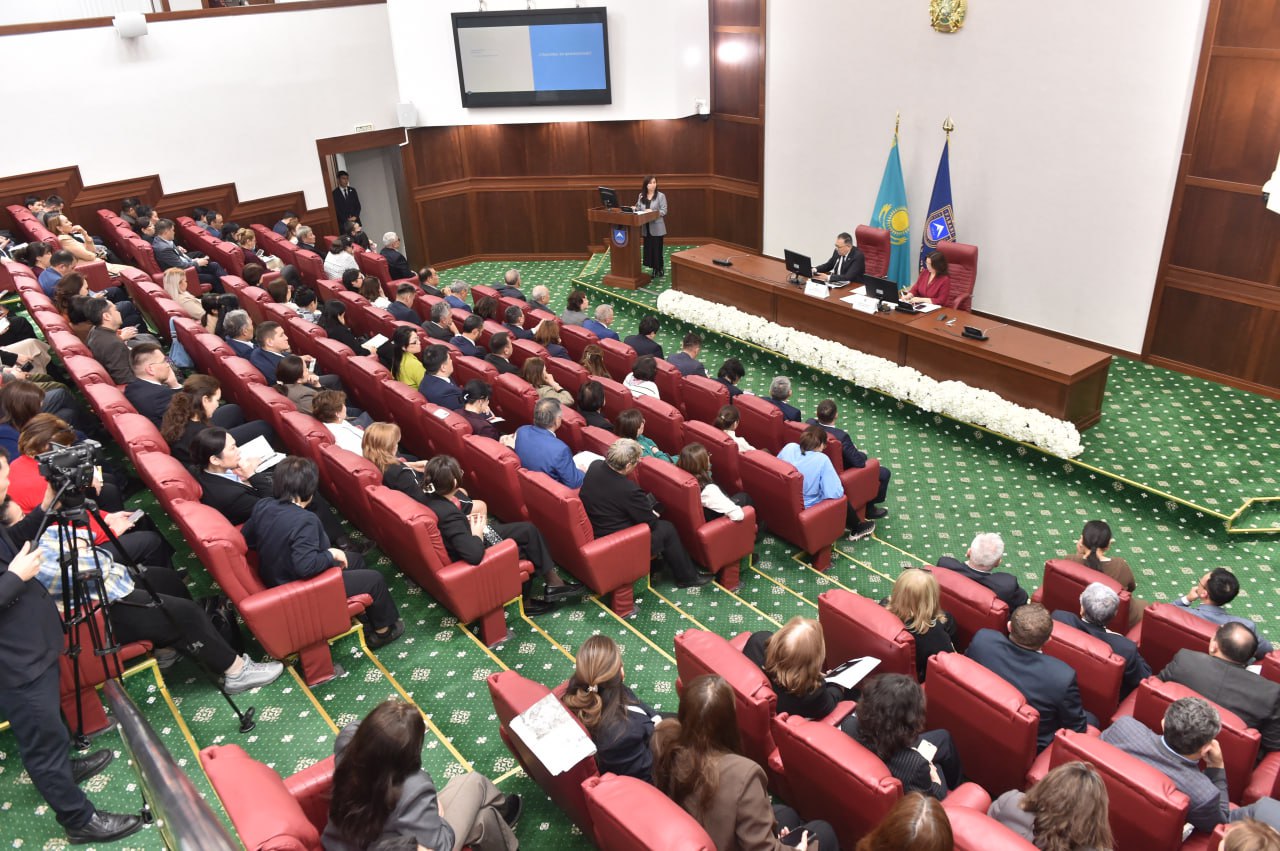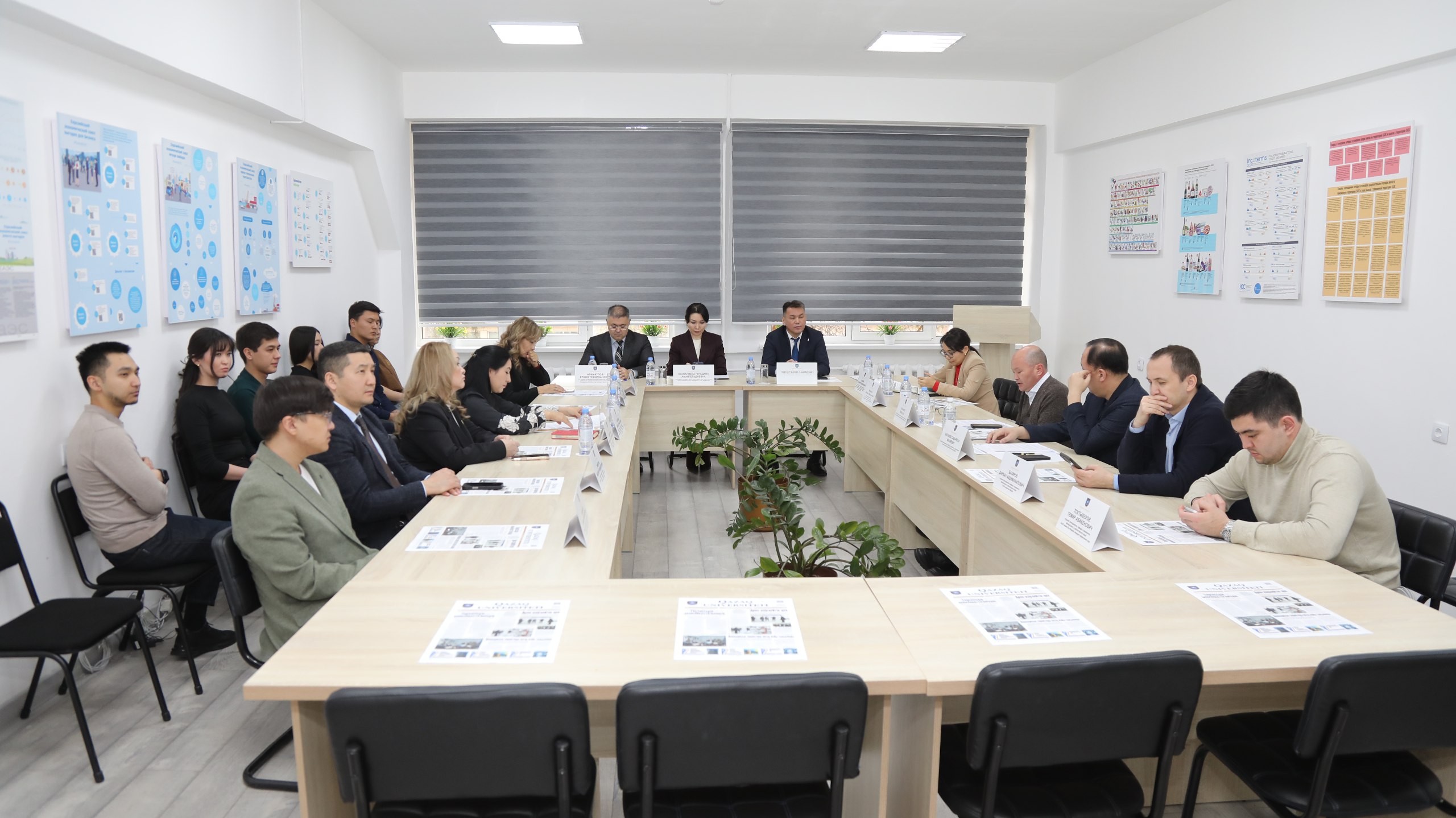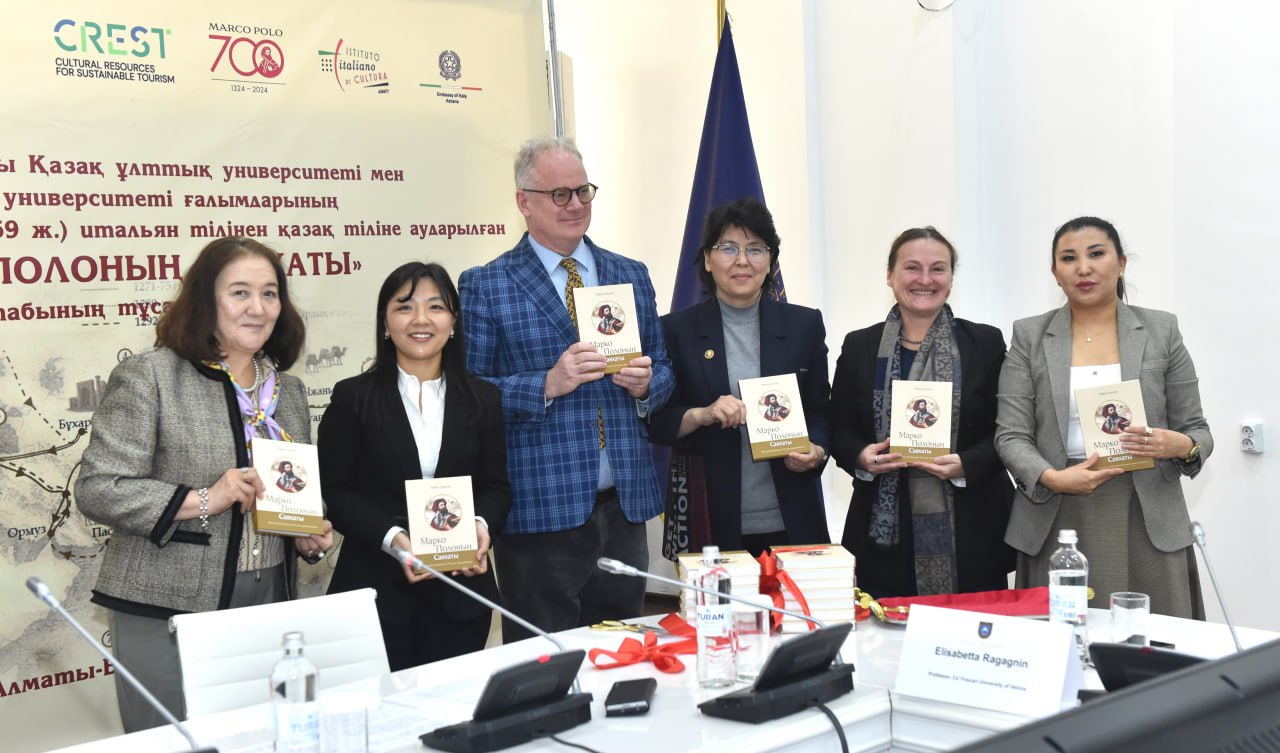Professor of KazNU researches Turkic history in the archives of Spain
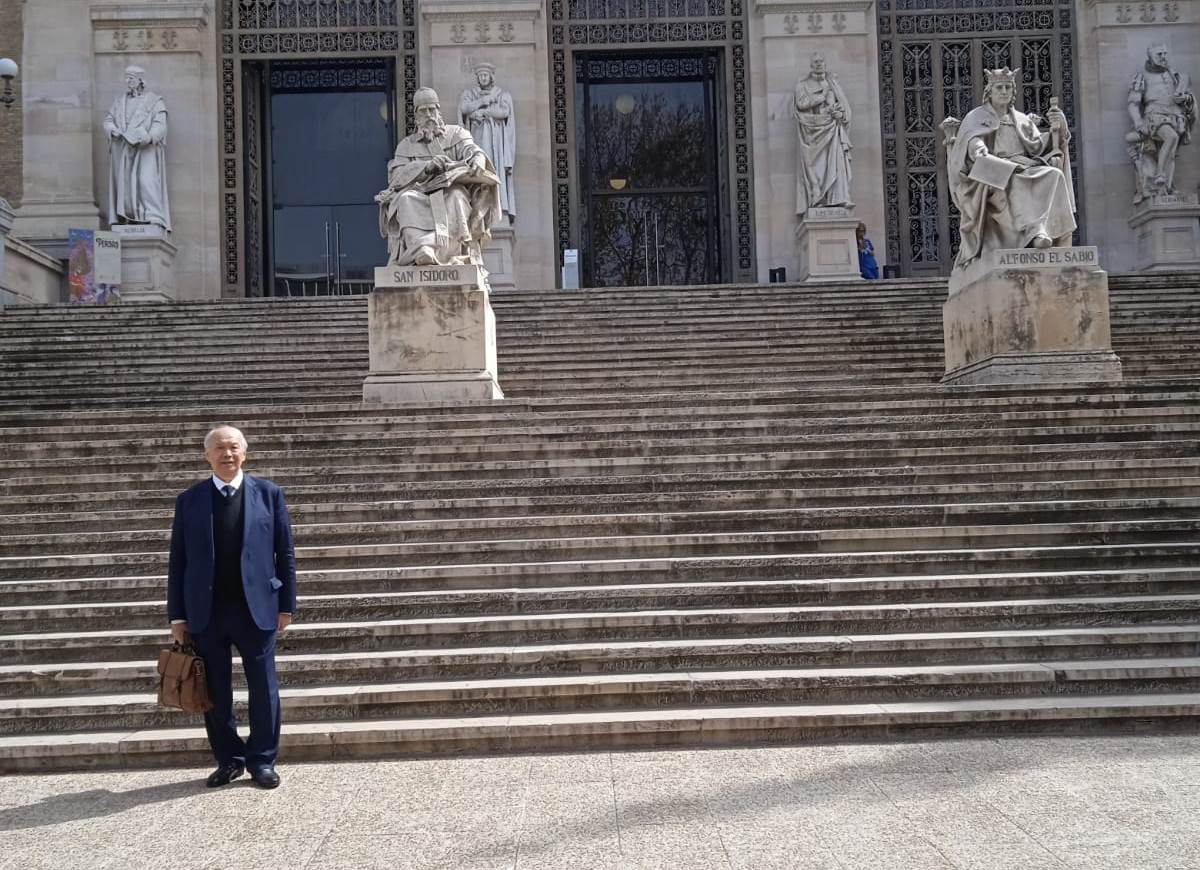
Recently, Doctor of Historical Sciences, Professor of Al-Farabi KazNU, director of the Scientific-Research Center on World History Studies, academician Kalkaman Zhumagulov returned from scientific internship. He himself says that this is his first visit to Spain working in the famous Biblioteca Nacional (National Library), as well as book depositories, funds and archives of universities in the Spanish capital.
According to the program “Turkic world of Eurasia (V-XIV centuries) according to Western historical and archival sources,” he identifies original materials on the history of the Hunnic Empire in the West, international relations at the turn of antiquity and the Middle Ages. These are rare chronicles in Latin, primarily by authors such as Isidorus Hispalensis. Historia Gothorum; Liber numerorum Le livre des nombres; Junioris episcopi Hispalensis Chronica Maiora. Orosius Paulus. Historiarum adversum paganos libri VII. Hydatius Lemicius. Continuatio chronicorum Hieronymianorum ad a. CCCCLXVIII.
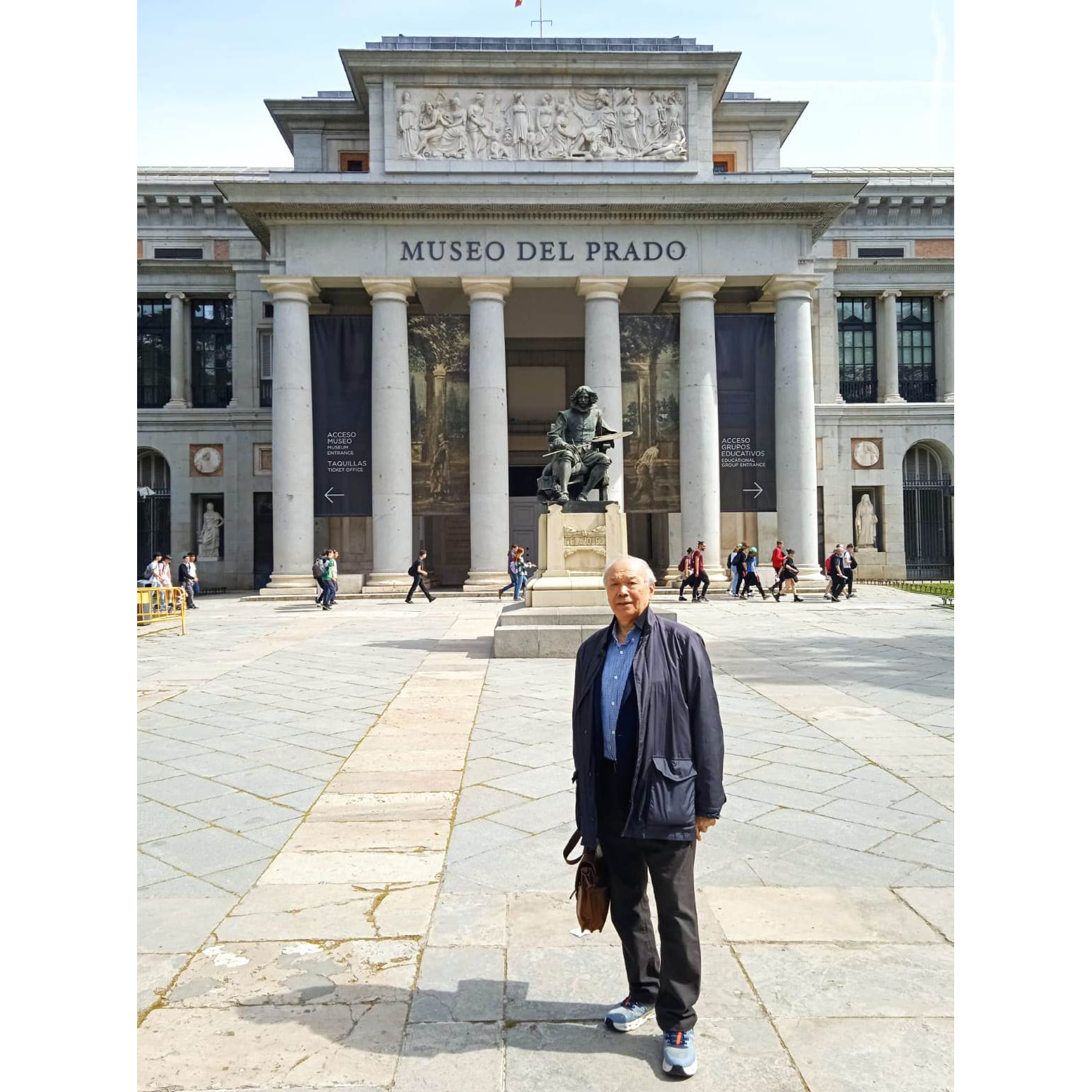
These unique sources in Latin make it possible to supplement the history of the Hunnic state, in terms of the famous Battle of Catalaunia in 451 and the Italian campaign of Attila in 452. In this grandiose battle of world history, the Visigothic kingdom on the territory of Spain was on the side of the Roman Empire and its allies. According to the professor, contemporaries of those events, in particular Isidore of Seville, Orosius, Hydatius, convey valuable information on the socio-political and religious relations of that era, including the Huns.
Professor K.T. Zhumagulov paid attention to the information of European travelers of the 13th-15th centuries, including Spanish travelers to East-Central Asia. This is a special type of historical sources that sheds light on the history of international relations, as well as economic and everyday life, social orders, religion and morals, trade on the Great Silk Road. The most significant of them are Ruy González de Clavijo, Paschalis Hispanus de Victoria, Gottifredo Morosini, etc.
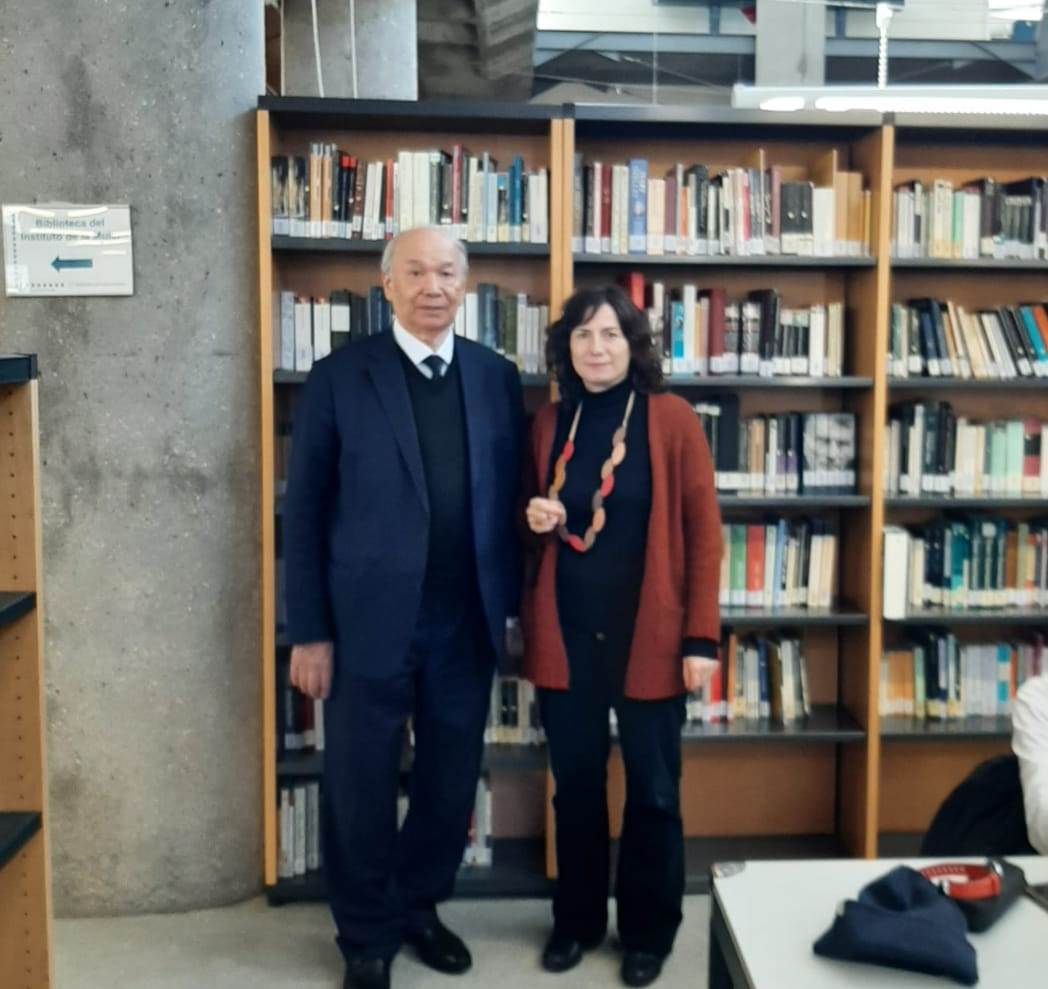
The professor paid special attention to visiting the world-famous National Prado Museum (Museo nacional del Prado). Unique collections of exceptional value and quality are concentrated here, the origins of which go back to the Spanish monarchs of the 16th-17th centuries. Their passion for collecting and personal tastes led to the fact that by the end of the 17th century. These meetings of the Spanish kings were recognized as the best in Europe.
As a professor - medievalist K.T. Zhumagulov begins the review with Velazquez, whose works occupy a significant place in the center of the Museum and testify, along with such names as Ribeira, Zurbaran and Murillo, to the incredible flowering of Spanish art in the 17th century.
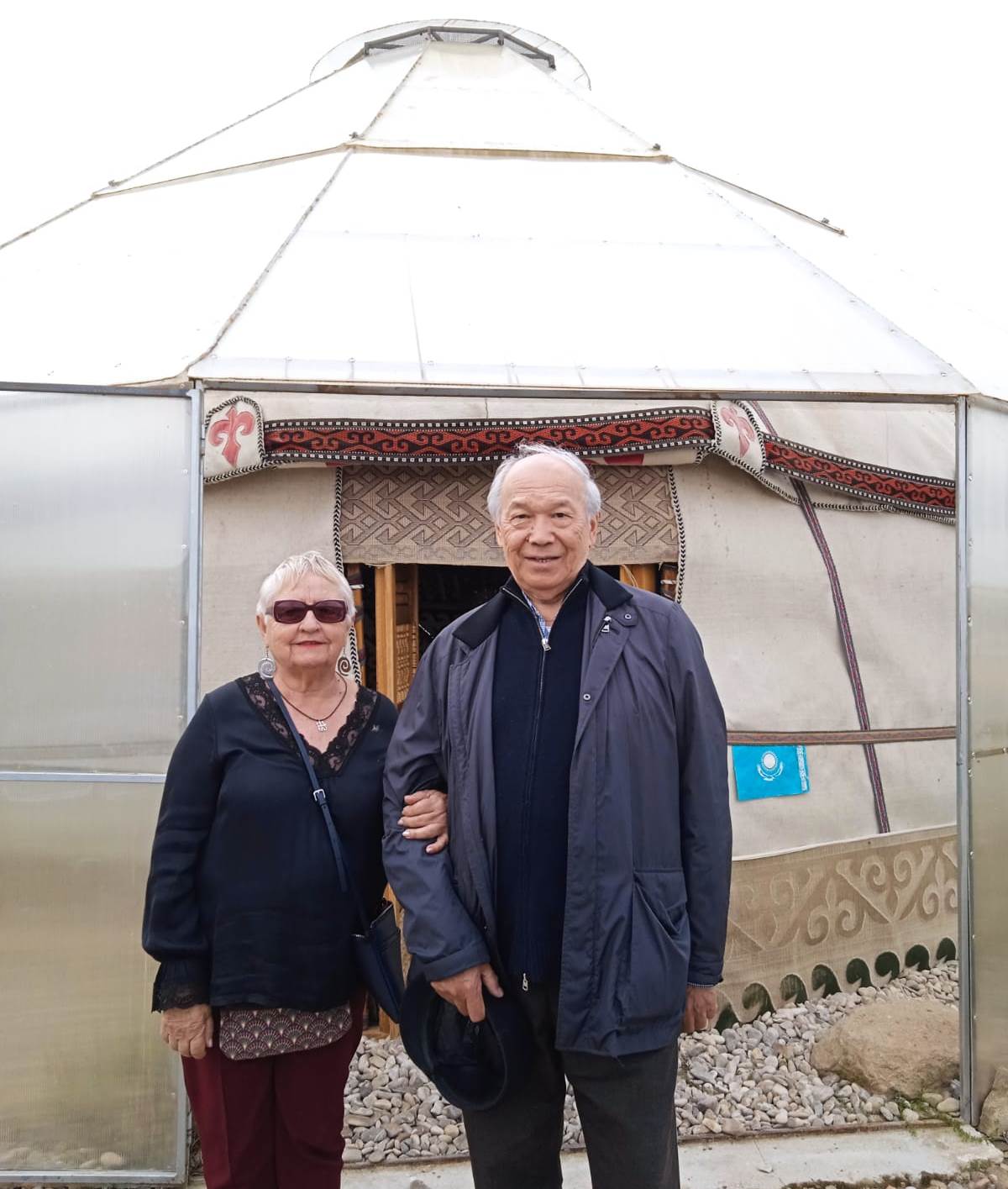
The unique materials of the Prado Museum allow students to broaden their horizons in the disciplines of the history of the Middle Ages and modern times, the history of civilizations and world museums. Here, a lot has been done to develop similar programs and courses at the Department of Archeology and Ethnology of the Faculty of History of KazNU by museologist Sofia Tulanovna.
At the National Library of Spain on March 19, 2024, the professor visited, in particular, the exhibition “Manuscriptos Persas” - a unique selection of original rare manuscripts not only from Persia, but also from neighboring territories. Here he highlights Ruy Gonzalez de Clavijo's book Del Gran Tamorlan. The work is dedicated to the power of Emir Tamerlane (edition 1582). This Spanish diplomat and traveler is known to have personally visited the court of Tamerlane in Transoxiana.
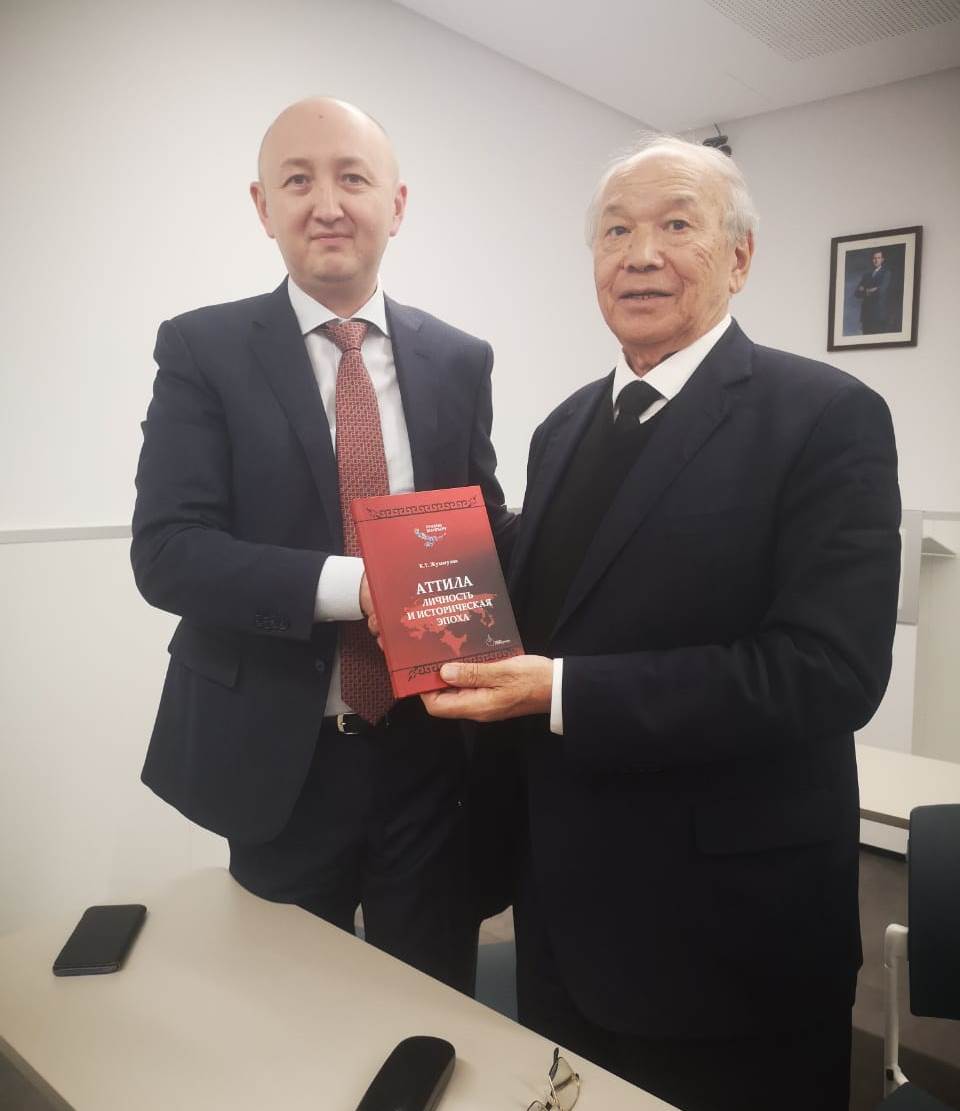
Particularly striking to the viewer is the original manuscript of Garcia de Silva y Picueroa, relating to his travels to India and Persia. Another manuscript is the original notes of Adolfo Rivadeneyra y Sánchez - a journey through inner Persia (Madrid, 1880, 3 vols.)
These unique manuscripts contain a lot of useful materials on the history of Central Asia.
It was remembered the meetings of professor K.T. Zhumagulov with mentors and students of the Autonomous University of Madrid (Universidad Autonoma de Madrid). Working in the library and talking with teachers and students, he was interested in the main directions of educational and scientific activities and the daily life of young people. The professor readily responded to questions from Spanish students regarding the past and current history and culture of Kazakhstan and Central Asia.
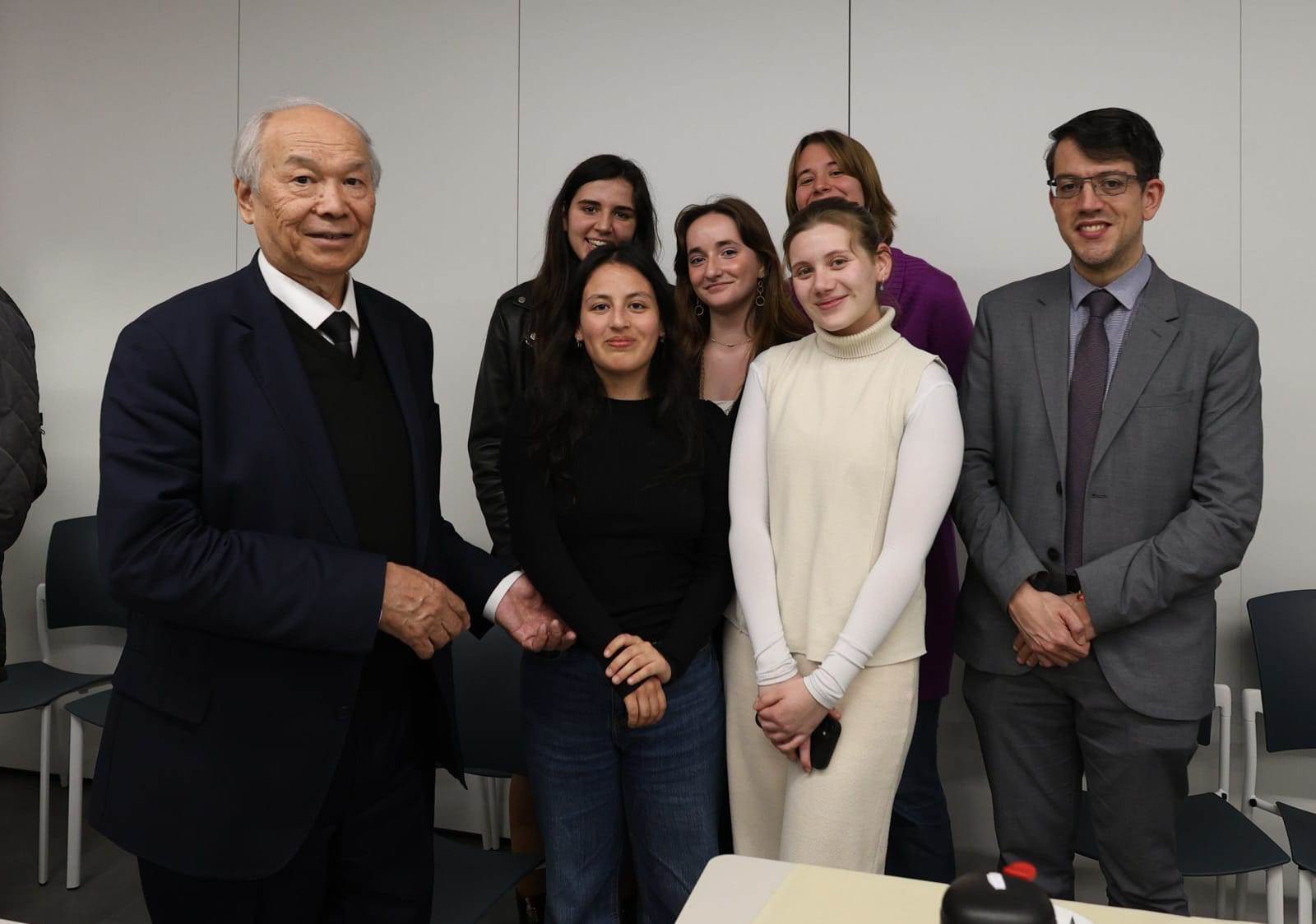
On 20th of March Professor K.T. Zhumagulov spoke at a round table meeting on the topic: “European Union - Central Asia.” This important event was organized by the Embassy of the Republic of Kazakhstan in Spain and the University of Madrid San Pablo (Universidad CEU San Pablo). The meeting was attended by representatives of the Spanish business community, professors and teachers, researchers and students.
The meeting was moderated by professor of political science Antonio Alonso Marcos, Ambassador of the Republic of Kazakhstan to the Kingdom of Spain Danat Musaev, Emilio de Miguel - senior official of the Spanish Ministry of Foreign Affairs, director of the House of Asia in Madrid, and others.
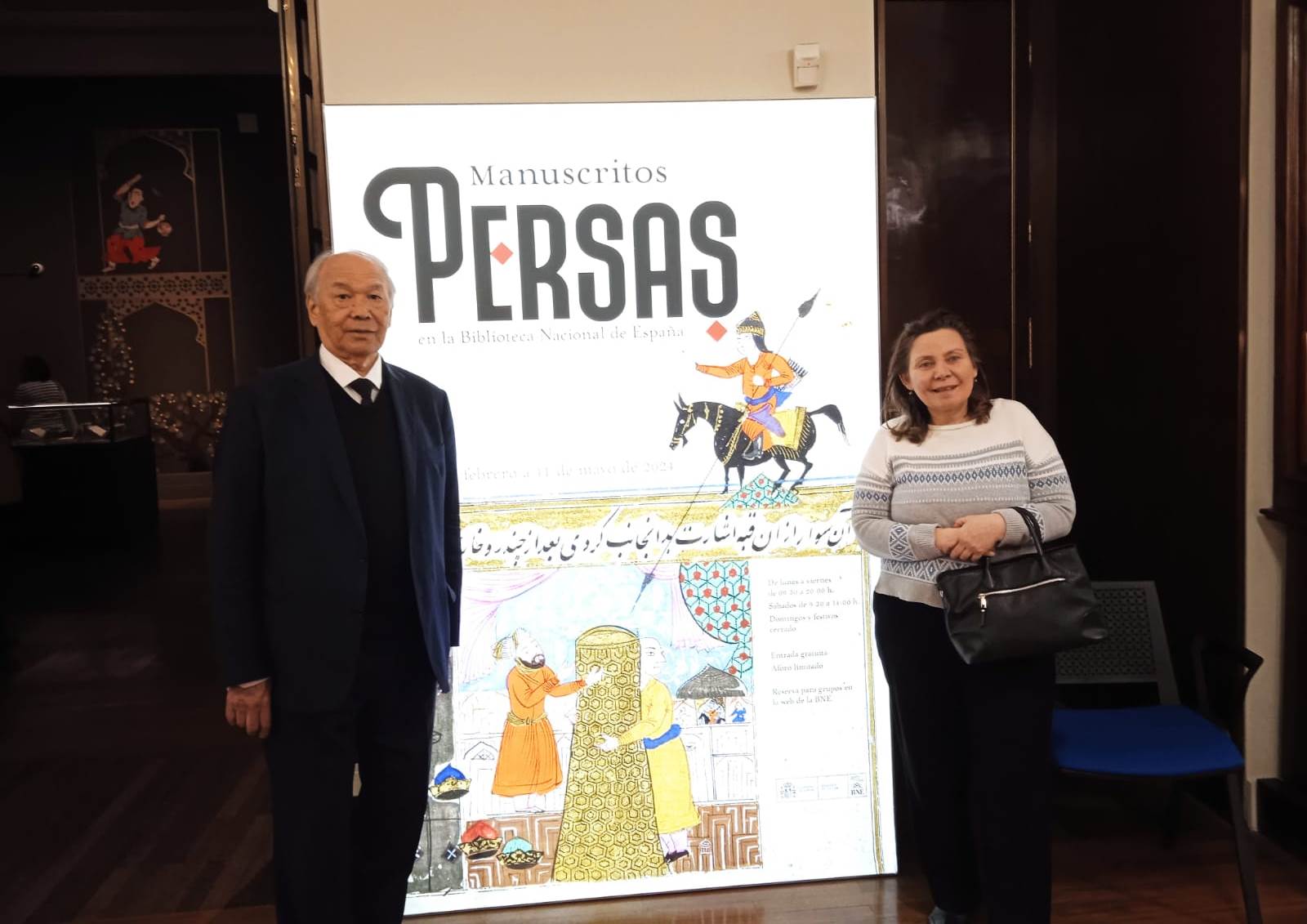
There was a constructive exchange of views, fruitful discussions and answers to questions of interest. According to the general opinion of the meeting participants, such events contribute to the further development and strengthening of relations between the EU and Central Asian countries, including between Spain and Kazakhstan in various fields.
On 23th of March K.T. Zhumagulov took part in Nauryz, held by the Kazakh diaspora in Spain near the famous city of Toledo. In organizing this representative event, which involved approx. 300 people, Gulnara Osmanalieva, president of the Kazakh Diaspora Association, took an active part. On the Spanish side, special mention should be made of the efforts of the Carmen Arnau Muro Foundation (Fundación Carmen Arnau Muro), which is engaged in the study and dissemination of the culture of the peoples of Siberia and Central Asia. In his congratulatory speech, the Kazakh professor noted that such meetings contribute to the further development of relationships and mutual understanding between countries and peoples. Nauryz really brings people together. Its celebration unites Kazakhstanis living far in the South-West of Europe.
Press-service of Al-Farabi Kazakh National University
